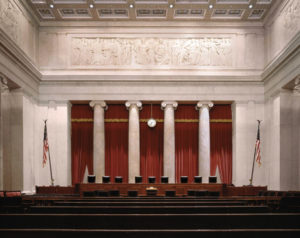Charter schools in Ohio and Michigan sue Biden administration
(The Center Square) – A group of Ohio and Michigan charter schools sued the Biden administration today, claiming a new rule that requires charter schools to prove public schools are over-enrolled…

(The Center Square) – A group of Ohio and Michigan charter schools sued the Biden administration today, claiming a new rule that requires charter schools to prove public schools are over-enrolled is illegal.
The federal lawsuit, filed in the U.S. District Court for the Western District of Michigan, includes the Michigan Charter School Association and the Thomas B. Fordham Institute, a nonprofit charter school authorizer that supervises 13 charter schools in Ohio.
The new rule, which received a shortened 35-day comment period and 26,000 unique comments, took effect Aug. 5.
“This new rule will profoundly harm children who need the educational opportunities that charter schools provide,” said Dan Quisenberry, president of Michigan’s Charter School Association. “Charter schools shouldn’t be punished just because traditional public schools – and the current administration – don’t like them.”
Congress expanded the federal Charter Schools Program in 2015, appropriating hundreds of millions of dollars. It also established instructions and criteria for distributing the money.
The new rule requires charter schools must prove traditional public schools are both failing and over-enrolled. Charters must also seek approval from existing public schools and show they are not serving too many students who are racial minorities.
Both the Ohio and Michigan groups argue in their suit the Department of Education does not have the authority to contradict Congress’ 2015 directive. The groups are being represented free of charge by the Pacific Legal Foundation.
“This attack on charter schools is not only deeply unfair to kids who would benefit from educational alternatives, it’s illegal. The Department of Education has no authority to issue these new rules,” said Pacific Legal Foundation attorney Caleb Kruckenberg. “The agency cannot advance a policy agenda contrary to Congress’ clear instructions otherwise.”



